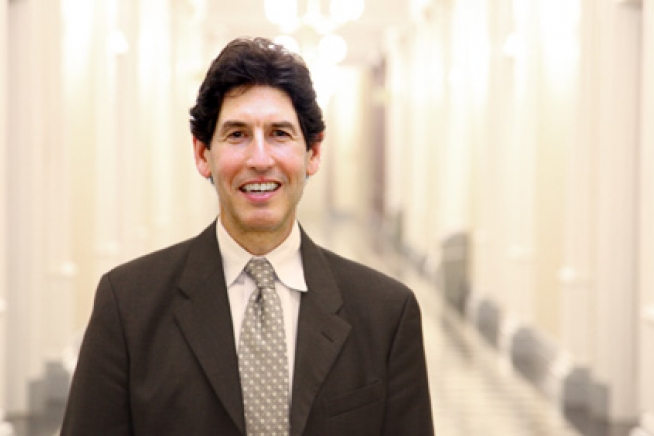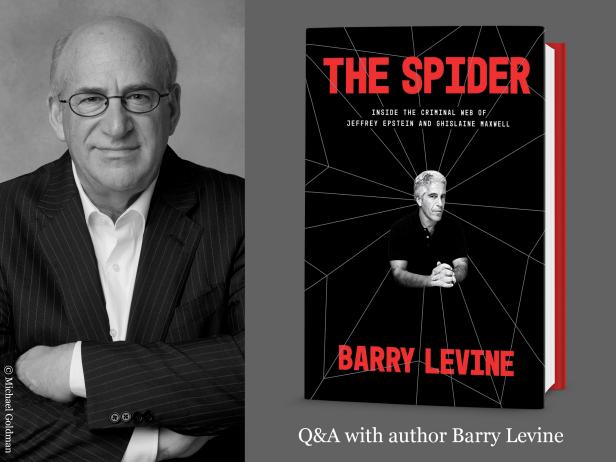What Happened To Barry Levin? Exploring The Unseen Threads Of Inquiry
There's a natural pull we feel when a question hangs in the air, especially about someone's story. It's like finding a half-finished book and wanting to know how it all turns out. We just really want to understand, you know? This human wish to connect pieces, to make sense of things, is a pretty strong one, and it often leads us to ask about people whose paths seem to have faded from view.
Often, when a name comes up, like "Barry Levin," and the question "What happened?" follows, it sparks a deep curiosity. It's not just about a person; it's about the stories we share, the connections we make, and the gaps we try to fill in our collective memory. We are, in a way, drawn to these puzzles, hoping to piece together what might have occurred, or perhaps, why a person's presence seems to have changed.
This kind of inquiry, about someone like Barry Levin, is a bit like looking for an old friend's contact information after many years. You have a name, but the details are a little fuzzy, and you are trying to find the right way to reconnect with that narrative. It's a very common experience, actually, to wonder about people who were once part of our lives or community, and then, for some reason, are not as visible anymore.
Table of Contents
- The Human Wish to Know: Why We Ask "What Happened?"
- Barry Levin: A Name, A Question Mark
- Finding Answers: Where We Might Look
- The Ripple Effect of Unanswered Questions
- Common Questions About Such Situations
- Keeping the Search for Understanding Alive
The Human Wish to Know: Why We Ask "What Happened?"
It's a pretty interesting thing, this deep-seated human wish to understand. When we come across a question like "What happened to Barry Levin?", it taps into something basic within us. We're wired, you know, to seek patterns and to fill in gaps. This isn't just idle curiosity; it's a way we make sense of our world, and in some respects, it helps us feel connected to the larger human story. We often look for closure, or at least some kind of explanation, when a person's story seems incomplete.
Why We Ask "What Happened?"
Asking "What happened?" about someone can stem from many places. Sometimes, it's a feeling of nostalgia, a trip down memory lane, as we remember past events. Maybe Barry Levin was a person who touched many lives, or perhaps they were a public figure whose presence simply faded. For instance, people often ask about old classmates, former colleagues, or even public figures who stepped out of the spotlight. It's a way of checking in, a bit like wondering about those internet abbreviations you might see and how to use them correctly. You just want to understand the full picture, don't you?
There's also a communal aspect to it. When one person asks, others might chime in, sharing bits and pieces they recall. This collective memory can, in a way, help to build a more complete picture, even if it's just a general idea. It's about piecing together a narrative from shared experiences, which is pretty common when we're trying to figure out something that isn't immediately obvious.
Barry Levin: A Name, A Question Mark
When a name like Barry Levin comes up with such a big question attached, it really highlights how stories can sometimes become unclear. The very nature of asking "What happened to Barry Levin?" means that for many, the details of his path are not widely known or easily found. It suggests a gap, a moment where a visible presence might have changed, leaving a quiet question behind. This kind of inquiry can feel very personal, even if you don't know the person directly.
Personal Details: Barry Levin
It's important to be honest about what we know, or rather, what information is publicly available, when a question like this comes up. For someone asking "What happened to Barry Levin?", specific biographical details might be hard to come by, and that's just the way it is sometimes. The table below shows the kind of information people typically look for when trying to understand a person's story.
| Detail | Information |
|---|---|
| Full Name | Barry Levin |
| Date of Birth | Information Not Readily Available |
| Place of Birth | Information Not Readily Available |
| Known Occupations/Roles | Information Not Readily Available |
| Last Known Activity/Location | Information Not Readily Available |
| Status | Unclear / Subject of Inquiry |
As you can see, there's a lot that remains unconfirmed for a name like this without more context. This lack of clear data is often the very reason such questions are asked in the first place, actually. It's a bit like trying to understand the simple past tense without examples; you need the details to make sense of it.
The Pull of the Unknown
The human mind has a pretty strong pull towards things that are not fully explained. A question about "What happened to Barry Levin?" is a prime example of this. It's not just about a person's life; it's about the broader idea of how people move through the world and how their stories intersect with ours, even if only briefly. This curiosity, you know, is a very natural part of how we process the world around us.
When someone's story becomes less visible, it can leave a little space in our collective awareness. This space then prompts questions, and those questions can linger for a long time. It shows how much we value the narratives of others, and how we wish to understand the full arc of a person's time and experiences. It's really quite fascinating, in a way, how these inquiries arise.
Finding Answers: Where We Might Look
When you're trying to figure out "What happened to Barry Levin?", or anyone else whose current situation isn't clear, there are generally some places people tend to look. It's a bit like trying to find the right preposition for a sentence; you have to consider the context to get it just right. Finding information about someone's life, especially if they are not a widely known public figure, can be a bit of a patient search, you know.
Digital Footprints and Online Traces
In our connected world, many people leave some kind of digital trace. This might include old social media profiles, mentions in online articles, or even community forums where their name might have appeared. Searching for "Barry Levin" online could, arguably, turn up some public records or news items if they were involved in something newsworthy. However, it's also true that many people have a very small online presence, or they might have chosen to step away from it entirely.
Public databases, like those for professional licenses or property records, sometimes offer a little bit of information, but they are not always complete or easily accessible to everyone. It really depends on the specific circumstances and how much information a person has, perhaps, chosen to share or has had shared about them publicly. It's a bit of a puzzle, and you just gather the pieces as you find them.
It's also worth remembering that information found online needs to be looked at with a thoughtful eye. Not everything you see is completely accurate or up-to-date. So, you know, always consider the source and how current the information might be. This is pretty much like any kind of research, where you need to be a little careful about what you accept as fact.
Community and Shared Memory
Sometimes, the best source of information about someone like Barry Levin isn't on the internet at all. It might be within the communities they were a part of. This could mean old neighborhoods, schools, workplaces, or social groups. People who knew Barry Levin directly might hold the answers, or at least pieces of the story, that are not available in public records.
Reaching out to these communities, perhaps through local historical societies, alumni networks, or even local social media groups, could, in some respects, be a way to gather insights. It's about tapping into the collective memory of a group of people who shared a common experience or time with the person in question. This is often how stories are preserved, through the memories and conversations of those who were there, as a matter of fact.
This approach really relies on the kindness and willingness of others to share what they recall. It's a very human way of gathering information, built on the idea that our personal histories are often intertwined with those around us. And, you know, sometimes a simple conversation can reveal a whole lot more than a long online search.
The Ripple Effect of Unanswered Questions
When a question like "What happened to Barry Levin?" remains without a clear answer, it can have a subtle but real ripple effect. It's not just about satisfying curiosity; it can also be about the sense of completeness we seek in our understanding of the world. An unresolved story, in a way, can leave a tiny bit of an open loop in our minds, and that's a pretty common human response.
How Not Knowing Can Affect Us
For those who knew Barry Levin, not knowing what happened can sometimes mean a feeling of unfinished business. It might spark concern, or simply a wish for peace of mind. For others, it might just be a general sense of wonder about the various paths people take in life. It's a reminder that not every story has a neat conclusion, and some threads simply fade away, which is a bit sad, perhaps, but also a part of life.
These kinds of questions also highlight the importance of human connection and the impact people have on each other. When someone's presence changes, it affects those around them, even if in small ways. So, the question "What happened to Barry Levin?" is, in a way, a testament to the fact that people matter, and their stories, even if not fully known, are still important to those who remember them.
It can also make us think about our own digital footprints and the legacy we leave. How much of our story will be clear to others in the future? These are pretty big thoughts, and they often come up when we consider the mystery of someone else's journey. It's something to think about, really, as we all move through our days.
Common Questions About Such Situations
When people ask "What happened to Barry Levin?", they are usually looking for certain kinds of information. It's a pretty common pattern for these types of questions, so we can, in some respects, anticipate what someone is hoping to find out. Here are a few common inquiries that come up when someone's story is being sought after, along with some thoughts on how to approach them.
What kind of information is usually sought when someone asks "What happened to Barry Levin?"
People typically want to know about a person's current well-being, their location, or any major life events that might have occurred. They might be looking for confirmation of whether the person is still alive, where they are living, what they are doing now, or if they have experienced significant changes in their life, such as a career shift, family developments, or even, sadly, if they have passed away. It's about filling in the blanks of a person

Barry C. Levin | The White House

Barry Levine's Journey From Covering the Son of Sam to Uncovering What You Didn't Know About

Barry Levin News | Photos | Quotes | Video | Wiki - UPI.com